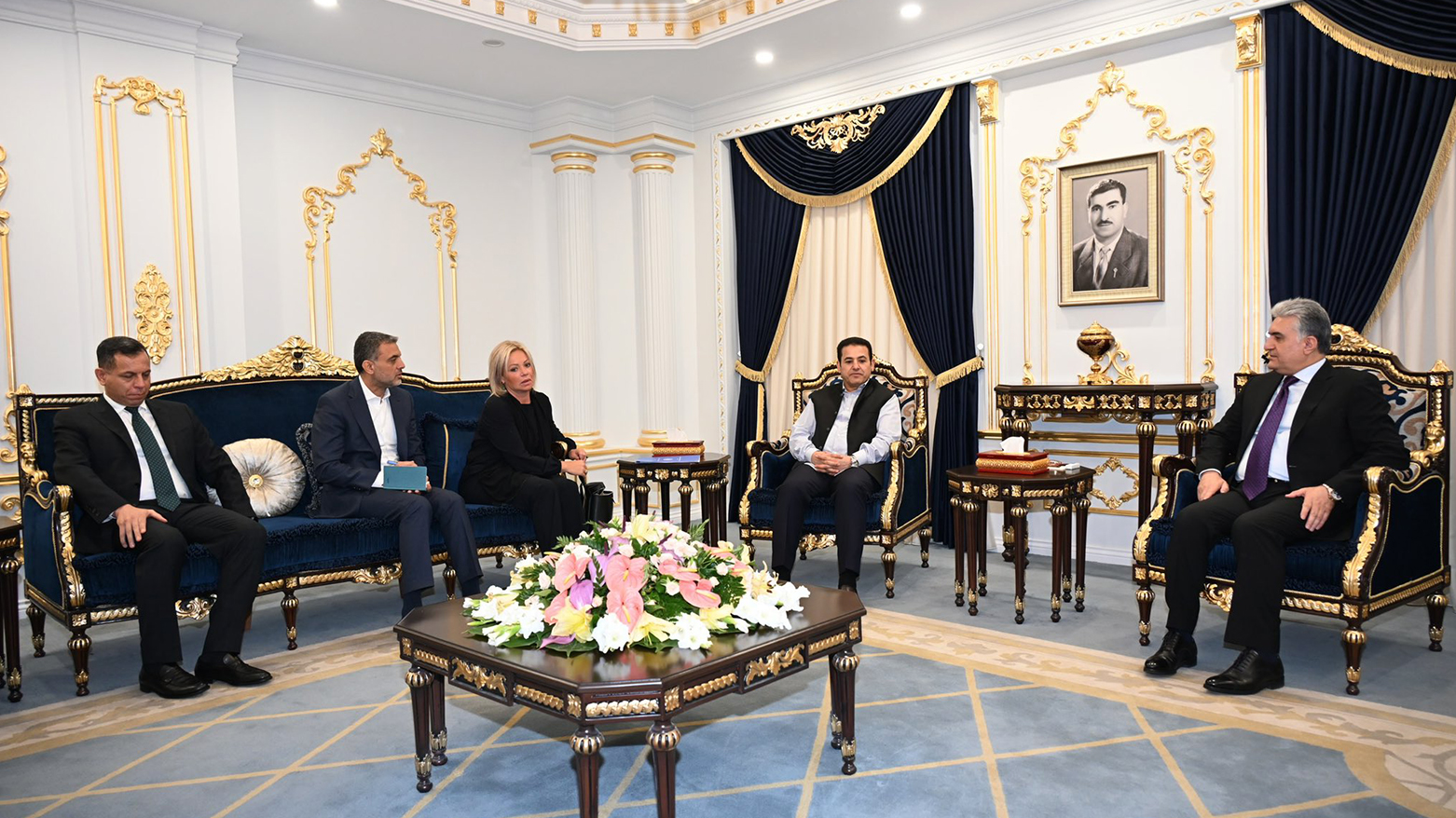KRG remains ‘committed to successful implementation’ of Iraq-Iran security agreement

ERBIL (Kurdistan 24) – Kurdistan Regional Government (KRG) Minister of Interior Reber Ahmed on Monday met with the head of the United Nations Assistance Mission to Iraq (UNAMI) Jeanine Hennis-Plasschaert and Iraqi National Security Advisor Qassem al-Araji.
“In order to follow up on the implementation and the ongoing progress of the security agreement between #Iraq and #Iran, I hosted @qassimalaraji, @JeanineHennis and their esteemed delegation at the Ministry of Interior,” KRG Minister of Interior Reber Ahmed said on social media platform X, formerly known as Twitter.
“We remain committed to the successful implementation of the agreement and mutual security cooperation,” Ahmed added.
In order to follow up on the implementation and the ongoing progress of the security agreement between #Iraq and #Iran, I hosted @qassimalaraji , @JeanineHennis and their esteemed delegation at the Ministry of Interior. We remain committed to the successful implementation of the… pic.twitter.com/1nrnpDb9XP
— Rêber Ahmed (@RayberAhmed) September 18, 2023
Iran has previously bombarded the Region’s border areas and alleged positions of the militant groups. Iran alleges the Kurdish opposition groups Kurdistan Freedom Party (PAK), Kurdistan Democratic Party of Iran (KDPI), and Free Life Party of Kurdistan (PJAK), and were behind the Sept. 2022 protests sparked by the death of Mahsa (Zhina) Amini, who died in police custody during her detention for “violating” the country's dress code.
Kurdistan Region officials have said on many occasions that they do not allow any group to threaten Iranian national security from within the Kurdish region.
Should the Iraqi government fail to move the forces away from the border by Sept. 19, Tehran has forewarned it would resume its drone and artillery shelling against the suspected positions of the Kurdish forces inside the Kurdistan Region, which had witnessed rounds of attacks last year.
During his trip to Baghdad on Sept. 14, Kurdistan Region Prime Minister Masrour Barzani met with several major Shiite figures, closely linked to Iran, in an attempt to resolve security issues on its borders as Iran’s Sept. 19 ultimatum approaches.
The Premier met with Falih al-Fayyadh, head of the Popular Mobilization Forces (PMF). Fayyadh assumed that position after the previous PMF head, Abu Mahdi al-Mohandis, died in a U.S. strike in early 2020 that targeted Qasim Soleimani, head of the Qods Force of Iran’s Islamic Revolutionary Guard Corps (IRGC.)
The second such figure with whom Barzani met was Hadi al-Amiri, head of the Fatah Alliance in Iraq’s parliament, as well as the leader of the Badr Organization. Amiri was Secretary of Transportation in the highly sectarian government of Nuri al-Maliki.
Barzani also met with al-Maliki, head of the State of Law Coalition in parliament. As a diplomat with a history of feuding with Kurdistan Region senior officials, al-Maliki notably strongly opposed the Kurdistan referendum as it unfolded throughout 2017.
